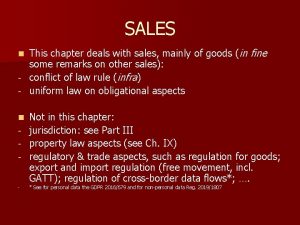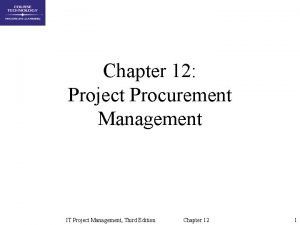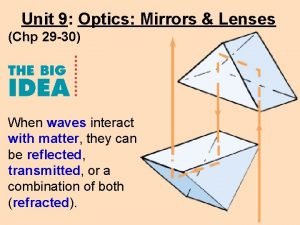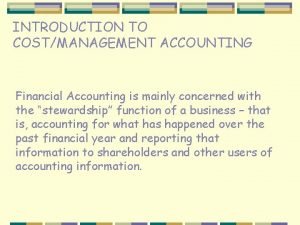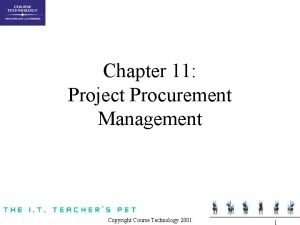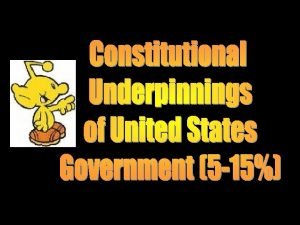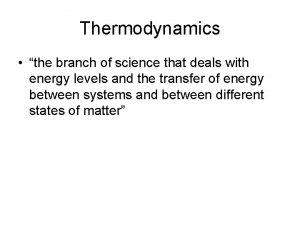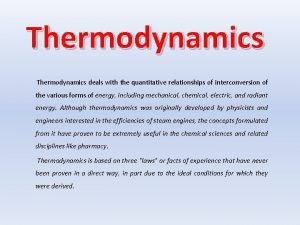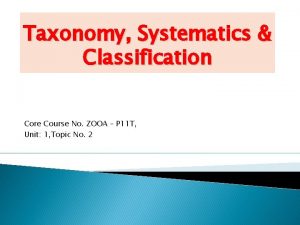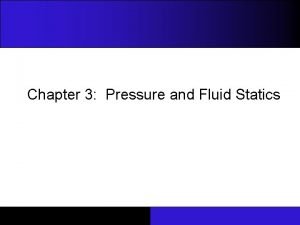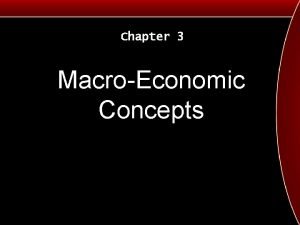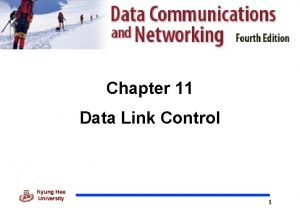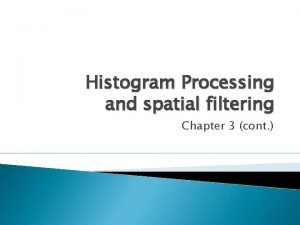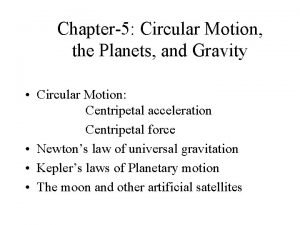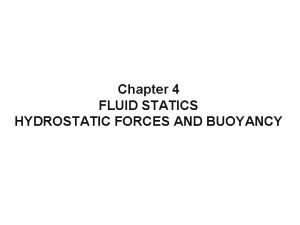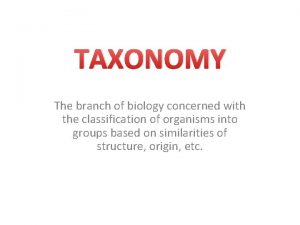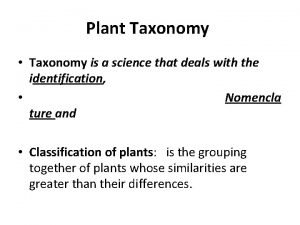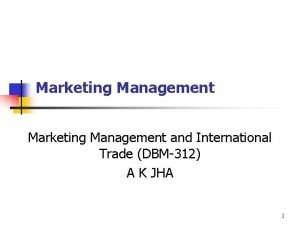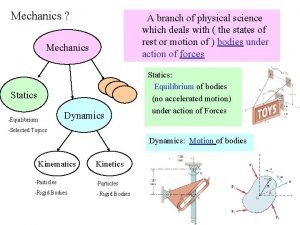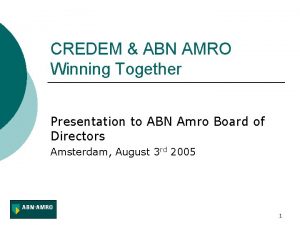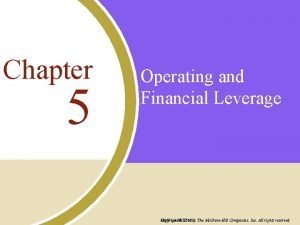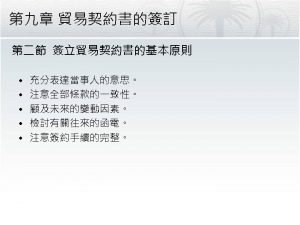SALES This chapter deals with sales mainly of




























































































- Slides: 92

SALES This chapter deals with sales, mainly of goods (in fine some remarks on other sales): - conflict of law rule (infra) - uniform law on obligational aspects n Not in this chapter: - jurisdiction: see Part III - property law aspects (see Ch. IX) - regulatory & trade aspects, such as regulation for goods; export and import regulation (free movement, incl. GATT); regulation of cross-border data flows*; …. n - * See for personal data the GDPR 2016/679 and for non-personal data Reg. 2019/1807

SALES n Jurisdiction: see Part III n Conflict rule: - Obligational aspects: see supra Rome-I Regulation for the lex contractus; but see Art. 1 CISG infra for more specific rules - Transfer of property (incl. and effectiveness of the property transfer towards third parties): lex rei sitae - (NB insofar as that law requires a valid agreement, the lex contractus determines the validity of that agreement)

SALES n - Why is uniform law important for sale of goods ? specific characteristics of international sales of goods: long distance / transport costs & time > avoid sending back (favor contractus) often ‘string sales’, i. e. a chain of sales of the same goods (see further different models of supply chains)

SALES Substantive law - degree of harmonisation : - CISG, succesful, limited to (some aspects of) international business sales of movables (goods) - Applicable national law: domestic sales and non-business sales - EU law has harmonised some aspects of consumer sales (and very few aspects of other sales) - Result: fragmentation of sales law - But influence of CISG on developments outside its scope is huge. - Incl. 2019 Directive on consumer sales and 2019 Directive on contracts for digital content (after failure of common EU Sales law) n In several respects CISG is already outdated > Swiss proposal for revision (no success until now) n

SALES – UNIFORM LAWS n n Predecessor: ULIS & ULFIS (Hague conventions 1964, Unidroit) Replaced by Vienna Sales Convention 1980 (Uncitral, 1 convention), in force 1988, 2020 in force in 93 countries including all EU countries except Ireland (as Portugal followed in 2020). Missing i. a. UK, India, S. Africa, Indonesia, Taiwan, Hongkong, Iran

CISG – SCOPE OF APPLICATION § Ratione materiae: Art. 1: “This Convention applies to contracts of sale of goods. . . ” The CISG contains no definition of contracts of sale of goods. It requires: (1) an obligation to transfer property and (2) an obligation to pay the purchase price (monetary consideration, ≠ barter) The CISG applies to sales of corporeal movables, including gaz. Does it also apply to sales of software & digital content ? Tendency to qualify it as a sale. Sale of data ?

CISG – SCOPE OF APPLICATION Art. 2: This Convention does not apply to sales: (a) of goods bought for personal, family or household use, unless* the seller, at any time before or at the conclusion of the contract, neither knew nor ought to have known that the goods were bought for any such use Ø Domestic consumer-protection laws are not affected by the CISG (but CISG defines whether CISG in principle applies) Ø Burden of proof is placed on the party claiming the applicability of the Convention Ø * example competition horse bought via an expert (Dutch Oost. Brabant court 2018) (b) by auction (c) on execution or otherwise by authority of law; (d) of stocks, shares, investment securities, negotiable instruments or money (see last slides in this chapter) (e) of ships, vessels, hovercraft or aircraft (f) of electricity.

CISG – MIXED CONTRACTS n n Art. 3 on mixed contracts: (1) Contracts for the supply of goods to be manufactured or produced are to be considered sales unless the party who orders the goods undertakes to supply a substantial part of the materials necessary for such manufacture or production. > “substantial part of materials”: criterion is economic (value); > plans & know how are as such not materials (CISG advisory council Opinion n° 4) n (2) This Convention does not apply to contracts in which the preponderant part of the obligations of the party who furnishes the goods consists in the supply of labour or other services. > if preponderant part is labour, services (turn key etc. ) > again “economic” criterion: value of the goods compared to value services n Lease agreements are excluded from the scope of the CISG Distribution / Agency agreements ? The framework agreement ≠ actual sale n

CISG – TERRITORIAL APPLICATION n Ratione loci: only « international sales » , more specifically in 2 cases : A) Direct application (voie directe) Art. 1 (1)(a) - Parties whose places of business are in different States and both States (of place of business) are Contracting States (i. e. have ratified CISG). This supposes that either the forum is a contracting State or the conflict rule of the forum refers to the law of a contracting state. - No other requirement (as e. g cross-border delivery or payment): Art. 1 (3): “Neither the nationality of the parties nor the civil of commercial character of the parties or of the contract is to be taken into consideration in determining the application of this Convention” n n - Problem of interpretation of place of business (comp. Rome-I-Regulation): next slide Exception (for both cases): art. 94 “neighbour clause” – countries with similar law making a declaration. Applies (only) to Inter-Nordic sales (5 Nordic countries). Art. 90 priority for regional uniform law, e. g. in OHADA-states

CISG – TERRITORIAL APPLICATION Problem of interpretation of place of business (comp. Rome-I-Regulation) Ø It must be a place at which there is a stable business organization Ø The contracting party at that place must have autonomous power to enter into the agreement (If sold or bought by such local branch of business > no international sale) Different place of business is not apparent (subjective international dimension): Art. 1 (2): “The fact that the parties have their place of business in different States is to be disregarded whenever this fact does not appear either from the contract or from any dealings between, or from information disclosed by, the parties at any time before or at the conclusion of the contract” More than one place of business: Art. 10 (1): “If a party has more than one place of business, the place of business is that which has the closest relationship to the contract and its performance, having regard to the circumstances known to or contemplated by the parties at any time before or at the conclusion of the contract” If no place of business: Art. 10 (2): “If a party does not have a place of business, reference is to made to his habitual residence”

CISG – TERRITORIAL APPLICATION n (Ratione loci: only « international sales » , more specifically in 2 cases cont. ) n B) Indirect application (voie indirecte): Art. 1 (1)(b) when the rules of private international law of the forum lead to the application of the law of a Contracting State (usually when sellers place of business in a contracting state, See Rome-I-Regulation; also in case of choice of the law of a contracting state*) - The Convention may also apply as the law applicable to the contract if so chosen contractually agreed by the parties. * Choice of law of a contracting state includes choice of CISG and is not presumed to exclude CISG – eg Cass. France 13 Sep. 2011, Cybernetix; German BGH 2018, Swiss BG 28 May 2019, etc.

CISG – TERRITORIAL APPLICATION n B) Indirect application (voie indirecte): Art. 1 (1)(b) n reservation of Article 95 by USA, PR China, Singapore, Armenia, Laos, Slovakia, St. Vincent: these countries do not apply CISG indirectly, i. e. in relation to a non. CISG state although the country of the applicable law has ratified CISG. - - even if that law is applicable because of the conflict rule of a foreign forum ? (disputed) (e. g. sale between US and UK; forum refers to the application of American law. Domestic American law will be applied, as American law does not apply CISG in relation to a non-CISG state as the UK) (disputed, but not disputed in German forum, given the explicit interpretative declaration of (only) Germany) Art. 2 Dutch CISG Implementing Act on the contrary rejects application of Dutch domestic law in such a case (and imposes CISG as part of Dutch law) CISG Adv. Council Opinion 15 also rejects the non-application of CISG in such a case. Schroeter et al. reservation can only be applied by the Courts of that state, not by other states (see the wording of (1)(b)): “it”)

CISG – REGULATED MATTERS n - n Regulated matters : Only law of obligations, no property law (art. 4). No procedural law, esp. burden of proof Only formation (incl. question of writing), performance, non-performance and associated questions (art. 4) Does include passing of risk (Ch. 4). Some (deliberate) lacunae (gaps) such as price revision, interest rate (s. however infra), . . . Some CISG provisions not applicable in certain states because of reservations made under Art. 96 (no form >< writing requirement in some countries) (reservation made by 9 countries)

CISG – MATTERS NOT REGULATED n n - - Disputed: set-off (see infra) Matters of the law of obligations NOT Regulated : validity and invalidity of the contract (see next slide), incl. legal capacity precontractual information insofar as relevant for validity (but impact of information on interpretation and conformity is a CISG matter) unfair commercial practices liability for damage consisting of death or personal injury (art. 5 CISG) prescription (separate Convention NY 1974 as modified Vienna 1980) assignability of rights and effect of assignment in relation to the assigned debtor (s. Assignment & Factoring Conventions); subrogation plurality of debtors (divisible or indivisible liability? ) authority of agents (1983 Unidroit Geneva Convention, not in force, 5 ratifications and 10 are required) Choice of law useful for matters not regulated

CISG – REGULATED MATTERS n - Substantial validity is not regulated by CISG, including legal capacity defects of consent, other invalidities (Unidroit Convention without success; see general contract law principles UPICC, PECL/DCFR) invalidity of specific clauses (nullity of penalties, exemption clauses, unfair clauses . . . ) public policy rules such as legal limits on what to sell, who to sell to or purchase from, and how to sell Exceptions, mattered covered by CISG: Formal validity: writing requirement falls under CISG (art. 11) even if a matter of validity in some jurisdictions (but possible declaration under art. 96 CISG) Validity of open price contracts Validity of contracts initially impossible S. further the discussion about negative reflex effect of CISG provisions (esp. nonconformity) on the possibility to invoke invalidity, esp. mistake/ misrepresentation n n Some cases of invalidity follow from other Conventions: eg Art. 3 UNESCO Conv. 1970 cultural goods prohibits import, export and transfer of property of cultural goods object of specific protection.

CISG – INTERPRETATION AND GAP -FILLING (1) n n - n First question: is the matter governed by CISG or not ? If not governed by CISG = « external » gap > national law applicable by virtue of the conflict of law rules If governed by CISG: either interpretation or « internal» gap Art. 7 (1) CISG – principle of autonomous interpretation Elements: internationality, need for uniformity, promotion of good faith in international trade (except where the CISG uses a notion that is necessarily to be filled in by domestic law, eg the reference to conflict of law rules (of the forum), as CISG contains no such rules) In practice not always respected (familiar interpretation) CLOUT database contains 4000 summaries of cases under CISG No duty to act (perform) in good faith - good faith requirement only for interpretation of CISG itself

CISG – INTERPRETATION AND GAP -FILLING (2) n Art 7 (2) CISG – Gap-filling (for internal gaps) 1° Usages and practices (Art. 9, I CISG) 2° Gap can be filled according to Art. 7, 2 on the basis of the « underlying principles » 3° If gap can not be filled on the basis of underlying principles / in the absence of such principles: applicable national law. Some courts very quickly come to this conclusion … (‘insularism’). Others will use other international sources to help find the underlying principles (eg UPICC) n - Examples of gaps: Place of payment of compensation: internal gap Electronic communication as writing ? Internal gap. See CISG Advisory Council opinion n° 1 Interest rate: gap; disputed whether internal or external gap Hardship: disputed, see discussion further

CISG – OPT-OUT & DEROGATION - - - Art. 6 : The parties may: exclude the application of this Convention (opt-out - domestic law then applies, incl. an optional sales law if domestic law so allows) or derogate from or vary the effect of any of its provisions (remaining CISG articles apply) No mandatory law in CISG (bus most matters of mandatory law are not regulated in CISG) Attention: NY Limitation convention (s. infra) is a separate Convention. A separate opt-out in necessary to avoid its application The opt-out itself is governed by CISG and must meet its requirements (cfr CISG AC opinion 16). Usually, a general reference to national law of a contracting state is not considered to be an opt-out from CISG. But a reference to specific articles of national law on matters covered by CISG may imply an opt-out -

CISG – GENERAL PROVISIONS JURIDICAL ACTS (1) n No duty to act according to good faith (see Art. 7) n How intention is determined – interpretation of acts: Art. 8 CISG Interpretation of statements made by and other conduct of a party : - (1) according to the intent of that party where the other party knew or could not have been unaware what that intent was (2) subsidiary: according to the understanding that a reasonable person of the same kind as the other party would have had in the same circumstances > taking into account all circumstances , incl. negotiations, practices, subsequent conduct (latter can be excluded: « No Oral Modification » clause in art. 29, 2 CISG, however, estoppel can apply to that clause) - Case law also applies the contra proferentem rule for interpretation in case of doubt (eg BGH 28 may 2014 Bowlingbahn)

CISG –JURIDICAL ACTS (2) - INTERPRETATION n CISG AC 13 + German BGH 28 May 2014: in case of doubt interpret ‘contra proferentem’ (against the party who formulated the clause) n - CISG does not incorporate: - the plain meaning rule, - the parol evidence rule (CISG AC Opinion 3, next slide) n CISG has no rule on implied terms (compare UPICC) -

CISG Advisory Council – op. 3 n 1. The Parol Evidence Rule has not been incorporated into the CISG. The CISG governs the role and weight to be ascribed to contractual writing. n 2. In some common law jurisdictions, the Plain Meaning Rule prevents a court from considering evidence outside a seemingly unambiguous writing for purposes of contractual interpretation. The Plain Meaning Rule does not apply under the CISG. n 3. A Merger Clause, also referred to as an Entire Agreement Clause, when in a contract governed by the CISG, derogates from norms of interpretation and evidence contained in the CISG. The effect may be to prevent a party from relying on evidence of statements or agreements not contained in the writing. Moreover, if the parties so intend, a Merger Clause may bar evidence of trade usages. However, in determining the effect of such a Merger Clause, the parties' statements and negotiations, as well as all other relevant circumstances shall be taken into account. n

CISG –JURIDICAL ACTS (4) § Art. 9 CISG Usages and practices Ø Practices are specific to two persons, e. g. giving credit, and are established by a course of conduct that creates an expectation that this conduct will be continued Ø Usages are of more general application. Art. 9 (1) « The parties are bound by any usage to which they have agreed and by any practices which they have established between themselves » Ø Usage does not have to be well known in international trade. It can even be a local usage as long as the parties have agreed to it. Art. 9 (2) « The parties are considered, unless otherwise agreed, to have impliedly made applicable to their contract or its formation a usage of which the parties knew or ought to have known and which in international trade is widely known to, and regularly observed by, parties to contracts of the type involved in the particular trade concerned. » Comp. Art. 1. 9 Unidroit Principles Some sectorial standard terms are so widespread that they can be considered usages

CISG – GENERAL PROVISIONS JURIDICAL ACTS (5) n n No formal requirements formation or evidence – Art. 11 But reservation can be made (art. 12) and was made by several countries Ø « Writing » includes telegram and telex (Art. 13) Ø Comp. Art. 1. 2 Unidroit Principles Ø CISG supplemented by UN Convention on Electronic Communication Art. 20 (recognition of e-communication alsofor acts gevoerned by CISG etc. ). No formal requirements for modification or termination – Art. 29 (1) > by mere agreement, Art. 29 (but see 29 II : « no oral modification clause » is possible) Merger clause or Four Corners clause: is a deviation from CISG default rules Other general rules can be deduced from specific ones, e. g. : - when notice becomes effective (art. 24, 26, exception in 27), - meaning of silence or inactivity (art. 18, 1), - etc.

CISG – FORMATION (1) n Formation of the contract by offer and acceptance (Mirror model) n Offer: Art. 14 – definition/minimum content. Differs from proposal: addressed to one or more specific person(s); sufficiently definite (goods and price determinable, see art. 55 for price determination); indicates intention to be bound if accepted «effective» (not necessarily irrevocable) when it reaches the offeree (unless withdrawal reaches earlier or at the same time) (Art. 15) But still revocable (until the offeree has dispatched acceptance), unless irrevocability indicated (eg period for acceptance) or reasonably relied upon (Art. 16) It is terminated when a rejection reaches the offeror (Art. 17) - - Effect: if accepted during period of validity (and before revocation) (rules concerning the calculation of the period in Art. 20, 21) a contract is formed when the acceptance becomes effective (Art. 23)

CISG – FORMATION (2) n Formation of the contract by offer and acceptance (Mirror model) n Acceptance: not by mere inactivity (Art. 18 I) It becomes effective when it reaches the offeror within the time fixed or, if no time is fixed, within a reasonable time (Art. 18 II); possibly already when an act is performed (18 III). n n n Modified acceptance (Art. 19): do the modifications « materially» alter the terms of the offer ? Yes > counter-offer (19 I); No > accepted with modifications unless protest ( « last shot » ) (19 II). Acceptance may be withdrawn if the withdrawal reaches the offeror before or at the same time as the acceptance would have become effective

CISG – STANDARD TERMS n Incorporation of standard terms (of not yet recognised as a usage): Ø German Supreme Court “It is unanimously required that the recipient of a contract offer that is supposed to be based on general terms and conditions has the possibility to become aware of them in a reasonable manner. ” Ø Reasonable opportunity to take notice: see CISG AC Opinion 13 (2)). Ø In a language used or known by the other party Ø Except surprising terms: CISG AC Opinion 13 (7).

CISG – STANDARD TERMS § § - No special rules for “battle of forms” (i. e. general clauses contained in the forms exchanged between the offeror and the offeree are contradictory, esp. contradiction between general sales terms and general purchase terms). Case law diverges: Ø Outside the scope of the Convention (external gap) ? Ø Knock out rule? (or knock out as far as incompatible). Ø No gap, as under the last shot rule (Art. 19 CISG)? Comp. divergent national laws: UK last shot; Netherlands first shot; knock -out in B, Germany (BGH 9 Jan 2002), Austria, France; mixed rule in USA. - CISG AC Opinion 13 (10): knock out rule unless…

CISG - SELLER’S OBLIGATIONS (delivery 1) n Art. 30: delivery of the goods (incl. documents), transfer of property, conformity Obligation of delivery: − Place of performance: relevant i. a. for jurisdiction − > Art. 31: default rules: Ø Carriage involved: first carrier (independent carrier) Ø No carriage involved and contract relates to (a) specific goods, (b) unidentified goods to be drawn from a specific stock or (c) goods to be manufactured of produced and parties knew that the goods were at, or were to be manufactured of produced at, a particular place: place of the goods (ex works). Ø In other cases: seller’s place of business. − See also infra Incoterms and other specific contract terms. n Additional duties (Art. 32) related to (1) specification, (2) carriage and (3) insurance n

CISG - SELLER’S OBLIGATIONS (delivery 2) (Art. 30 : delivery of the goods (incl. documents), transfer of property, conformity) (Obligation of delivery – cont. ): n n − Time of performance (Art. 33) Ø Fixed date Ø Fixed period of time Ø In other cases: reasonable time after conclusion of the contract − Delivery of documents relating to the goods (Art. 34) (See CISG AC Opinion 11 as to interpretation of this rule) (see also infra Incoterms) − Duty to preserve the goods if buyer fails to take delivery (Art. 85 ff. )

CISG - SELLER’S OBLIGATIONS (conformity 1) Obligation of conformity in respect to the goods - Art. 35: n There is conformity only if the goods are : n 1) in conformity with specifications of the contract (quantity, quality, packaging) 2 a) fit for ordinary purposes (see next slide) = objective conformity 2 b) fit for particular purpose made known to seller (subjective conformity) Exception: circumstances show that the buyer did not rely, or that it was unreasonable for him to rely, on the seller’s skill and judgement, 2 c) in conformity with the qualities of the sample 2 d) usual or adequate packaging; Relationship between (1) and (2): cumulative or exclusive ? Dominant opinion : cumulative unless express deviation. n Ordinary purpose is not a good standard for multifunctional goods n n Exception: visible non-conformity at the time of conclusion of contract (35, 3)

CISG - SELLER’S OBLIGATIONS (conformity 2) Ad 35, 2: there is conformity only if the goods are « fit for ordinary purposes » §Are EU standards (or private standards approved by the EU*) part of a contract (within the EU)? Not as such: C-613/14 James Elliott / Irish Asphalt Depends on the interpretation of the contract; contract may explicity refer to standards and/or require a certificate certifying compliance with standards • the EU has regulated 1°general safety standards and 2°regulated certification by private bodies in several industry sectors (allowing them to grant the CE mark) (e. g. Ships (Dir. 2009/15 and Reg. 391/2009), machines, medical devices (Reg. 2007/745), …) • These rules, however, relate to free movement of goods and not as such to contract law. • Whether standards are part of the contract, is thus a matter for contract law.

CISG - conformity (2) Ad 35, 2: there is conformity only if the goods are « fit for ordinary purposes » - Standards § Quid under CISG ? • A contract will normally be interpreted in the sense that the goods must meet standards, esp. safety, health, etc. • > CISG AC Opinion 19 gives a list of factors to determine whether a given standard is part of the contract/conformity requirements • > id. : The relevant standards are those at the time of conclusion of the contract Some influential standard terms have been drafted by international organisations, e. g. UN ECE terms for machinery (”ECE 188”), for durable consumer goods, cereals, fruit and vegetables, timber, fuels. See also Orgalime general conditions (drafted by the industry federation Orgalim) The Agreement on Sanitary and Phytosanitary Measures (SPS 1994 supplementing GATT) refers to existing plant protection, animal health and food safety standards (the 3 sisters)

CISG - conformity (3) But where fit (in which place) ? Quid “local” standards ? Quid technical standards in country of buyer ≠ seller ? - German ‘cadmium in NZ mussels’ case (BGH 8 march 1995) where standards in country of buyer (NZ) were stricter than standards in country of seller, they do not apply unless the seller should have been aware of them - If the seller advertised in the buyer’s country or other special circumstances, standards of that country - Danish check-valves for petrol case (VLR 21 Dec 2004): rubber cracked and valve leaking due to additives (MTBE) used in buyers’ country (Scandinavia) but not in country of seller (Italy): non-conformity accepted - > CISG AC Opinion 18 art. 5: standards of the place of use not unaware to the seller may apply depending on whether seller could not have been unaware of the stanard and seller’s prior dealings at that place. - If parties intended the goods to be marketable on a certain market, requirements for access to that market are part of the contract. - the fact that the goods may be imported despite not complying with local standards (free movement rules in EU or GATT, country of origin principle) does not mean that they are also in conformity woth the contract n…

CISG - SELLER’S OBLIGATIONS (conformity 4) q Which quality ? Normal quality (not perfect or flawless unless contractually required or following from description as e. g. luxury goods) Quid suspicion of defects ? n Goods not usable (marketable) because of suspicion of eg contamination of food. Eg Argentinian rabbit meat case, BGH 1972: - non-conformity if suspicion arises before passing of risk - disputed as to suspicion arising after the passing of risk (BGH >< Schwenzer) q n Brands will often impose “Suppliers codes” containing obligations relating to the manufacturing process. Shift in requirements from only the product to also the process …. . (thus e. g. sustainability standards can be implemented), including traceability (esp. for food, e. g. meat) n But remember art. 35, 3 CISG (buyer’s knowledge of non-conformity, which may also relate to knowledge of the non-conformity of the process …)

SALES - SELLER’S OBLIGATIONS (Non-CISG) Additional obligations may arise from the contract or applicable mandatory rules See also in Ch. 5 (general contract law): - Some boilerplate clauses - Private Supply chain codes focusing not merely on product standards but also on process standards (transparency, sustainability, monitoring, …), etc…

CISG - SELLER’S OBLIGATION - PASSING OF RISK n n - n Ø Ø Ø Risk ≠ liability ! (the question of risk arises if the seller is not liable for nonconformity) Unless caused by the buyer itself, conformity has to be present at the time of passing of risk (Art. 36); even if the lack of conformity becomes apparent after that time; lack of conformity arising later ? Seller liable if consequence of breach, or if guaranteed (to remain fit or maintain qualities for a period) (‘warranty’). Implicitly limited to 2 years unless longer contractual period of warranty (39, 2) Relevance of «passing of risk» is thus: Risk of force majeure (price risk) Art. 66 « Loss or damage to the goods after the risk has passed to the buyer does not discharge him from his obligation to pay the price, unless the loss or damage is due to an act or omission of the seller » Time to judge conformity (or rather the cause of the lack of conformity) (Art. 36 (1)) Who bears the risk of non-performance by the carrier …. (esp. given the limitations of liability of carriers under the applicable legal rules (Hague/Hamburg/Rotterdam rules))

CISG - SELLER’S OBLIGATION - PASSING OF RISK − Different possible doctrines on the passing of risk: Ø At the time of conclusion of the contract ? Ø At the time of passing of ownership ? Ø At the time of delivery and possession of the goods ? − When does risk pass under CISG? As agreed; if not agreed: Ø Art. 69: at the moment of delivery, but (a) If the buyer refuses to take delivery: risk passes at that time (b) If place of delivery is other place than place of business of the seller: risk passes when delivery is due and the buyer is aware of the fact that the goods are placed at his disposal at that place Presupposes that the goods are identified to the contract (69 (3)).

CISG - SELLER’S OBLIGATION - PASSING OF RISK Ø Art. 67: in case of carriage of the goods: (a) No particular place: first carrier (independent carrier) (b) Particular place: carrier at that place Presupposes that the goods are identified to the contract (67 (2)) Ø Art. 68: in case of goods sold in transit: at the moment of conclusion of the contract, unless: (a) an agreement that the buyer will assume the risk from the moment the goods are handed over to the carrier can be implied from the circumstances (b) the seller knew of ought to have known that the goods had been lost or damaged and did not disclose this to the buyer Ø Ø See also Incoterms NB. In EU consumer sales, risk can only pass at factual delivery to the consumer (physical possession)

CISG – CONFORMITY AND EXAMINATION − - Art. 38: Buyer must examine the goods within a short period (not a real obligation, but a duty or Obliegenheit) Ø The examination must be objectively suitable for disclosing recognizable defects Ø The intensity of the examination depends upon: (a) The type of the goods (b) The quantity of the goods and their packaging (c) The buyer’s capabilities (d) The costs and time needed for the examination (e) The probability of defects (f) The potential losses caused by undisclosed defects If the contract involves carriage of the goods examination may be deferred until after the goods have arrived at their destination (38 II) (e. g. in a FOB sale) In case redispatch is foreseen, examination may take place at final destination (38 III). Some case law is very strict (eg Ugandan used shoes case).

CISG – CONFORMITY AND EXAMINATION - - Art. 39: Buyer must give notice of non-conformity (if unknown to seller) Ø As soon as discovered or ought to have discovered (CISG AC Opinion 2) Ø At the latest within a period of two years after delivery to the buyer, unless longer contractual period of guarantee Ø The notice is effective upon dispatch (Art. 27) Ø The notice must specify the nature of the lack of conformity Ø Sanction: loss of remedies (infra), unless reasonable excuse: limited remedies available (Art. 44) Delivery in parts – examination (+ notice) of each part necessary, buyer cannot wait until last delivery Art. 44: in case of reasonable excuse, limited remedies available (price reduction, damages) (Art. 44 on request of developing countries) Art. 40: rules not applicable if lack of conformity relates to facts of which he knew or could not have been unaware and which he did not disclose to the buyer (autonomous interpretation > Cass. Fr. 4 Nov 2014 no presumption of knowledge as in French law)

CISG – CONFORMITY AND VALIDITY Do CISG provisions on non-conformity have a « negative effect » (negative Reflexwirkung) on the possibility to invoke invalidity, esp. mistake/ misrepresentation ? Or is there a concurrence of actions between non-conformity and invalidity for mistake ? − They do have a negative effect under UPICC art. 3. 2. 4. : if validity is governed by UPICC, it is set aside by the rules on-performance − Majority of authors in favor of negative effect of CISG, but authors and courts often reasons in favour of the solution in their own system. Swiss BG 28 May 2019 applied negative effect of art. 35 CISG against invalidity for mistake (contrary to Swiss domestic law) − Anyway, in the sale of generic goods, mistake can only relate to characteristics of the genus, not of the goods delivered. The latter case is governed by CISG only.

CISG – SELLER’S OBLIGATIONS - to transfer property n The seller is obliged to procure the buyer property of the goods n Art. 41 : and to transfer them “free from any right or claim of a third party” (Art. 41) unless the buyer agreed to take such goods. - - The buyer’s mere knowledge of the third-party claim does not relieve the seller of his obligation. Consent is needed. The legal nature of the claim is irrelevant: claims based on better title to the goods, but also contractual claims. E. g. retention of ownership, the sale of goods belonging to another, right of pledge, lease, etc Decisive factor: whether the buyer’s use of the goods is infringed or disrupted by the third-party claims. Public law restrictions on the use of the goods are governed not by Art. 41, but by Art. 35. Similar duty to give notice (if unknown to seller) within a reasonable time after he has become aware or ought to have become aware of the right or claim (Art. 43). Reasonable time very often 1 month (German stolen car case, BGH 11 Jan 2006) Sanction: loss of some remedies Which remedies survive ? In case of reasonable excuse still price reduction or damages (Art. 44).

CISG – SELLER’S OBLIGATIONS - to transfer property The seller is obliged to transfer property of the goods − When is the obligation fulfilled? Requirements for an effective transfer of property not in CISG, question of (national) property law. Ø Consensual vs. Delivery transfer systems Ø Causal vs. Abstract transfer systems − Retention of ownership (cf. Art. 7 Insolvency Regulation, see further)

CISG - SELLER’S OBLIGATIONS – FREE FROM RIGHTS n - Obligation of conformity in respect to rights (art. 41) requires also: That goods are “free from any right or claim of a third party based on industrial property or other intellectual property” under some conditions: a) IP right in the country of the buyer or place of resale if contemplated: - In the absence of a special intended use: in the country in which the buyer has his place of business - In the event the goods are to be resold and used in a state other than the one where the buyer has his place of business: in the country of resale. - b) (constructive) knowledge of the seller and not of the buyer c) not resulting from compliance with instructions (drawings etc. ) of the buyer (Art. 42) - Similar duty to give notice (if unknown to seller) within a reasonable time after he has become aware or ought to have become aware of the right or claim (Art. 43). Sanction: loss of some remedies n Which remedies survive ? In case of reasonable excuse still price reduction or damages (Art. 44).

CISG – BUYER’S OBLIGATIONS (1) n Obligations of the buyer : specify, take delivery, pay the price, examine n If the contract provides so: specify the form, measurement or other features of the goods (Art. 65). n Taking delivery of the goods (Art. 60) − Buyer must undertake all acts which could reasonably be expected of him in order to enable the seller to make delivery − Place & time: see supra delivery − Buyer may refuse or accept early delivery (Art. 52 (1)) − Buyer may accept (and pay) or refuse excess quantity (Art. 52 (2)). n Examination & notice, see supra. n Duty to preserve the goods if buyer intends to reject them (Art. 86 -88)

CISG – BUYER’S OBLIGATIONS (2) n Payment of the price: − Includes all of the measures agreed upon in the contract to enable payment to be made − Price not fixed nor mode of determination? Normal price (Art. 55) Ø Sufficient to constitute an offer in the sense of Art. 14? − Place of payment : seller’s place c. q. place of handing over (Art. 57) − Time of payment (Art. 58): Ø When control is given to the buyer (for the notion of ‘documents controlling the disposition of the goods’, see CISG AC Opinion no. 11) Ø At the condition that he has had the opportunity to examine the goods Ø The seller does not need to send any advance reminder or other formal request for payment Ø Concrete rule will depend on clauses (often ‘payment against documents’). Ø Payment instruments: no provisions in CISG. See further Ch. 9 -10. Attention: when payment by l/c is provided, contract must already determine the main terms of the l/c required − The seller must accept partial payment or early payment if he is required to do so by contract.

SALES -INCOTERMS n « International commercial terms » : standard abbreviations, often three letter words (FOB, CIF, etc. ) n Defined as usages by the ICC (since 1936, several revisions; as of Jan 1, 2020: version 2020) Applicable when inserted in the contract, expressly or impliedly (specify the chosen version) n n n - Now (since 2010) 11 Incoterms Four basic categories : C-terms : seller pays carrier to agreed destination, but does not bear risk during carriage (attention: in CIF buyer must pay before inspection) D-terms: seller bears cost of carriage and risk until arrival at agreed destination – thus some « arrival duties » on the seller E-terms: ex works of the seller F-terms: delivery to the person paid by the buyer

SALES –INCOTERMS Rules for any mode of transport: n EXW Ex Works n FCA Free Carrier (hand over to the carrier named by the buyer; typically for container shipments) (delivery completed before loading on board) (preferred term for containerised goods) n CPT Carriage Paid To n CIP Carriage And Insurance Paid To n DPU Delivered At Place Unloaded (former DAT: at Terminal) n DAP Delivered At Place (even before unloading) n DDP Delivered Duty Paid Rules for sea and inland waterway transport: n FAS Free Alongside Ship (esp. for bulk trade) n FOB Free On Board (risk passes when goods put on board; in old versions: over the ship’s rail) n CFR Cost And Freight (risk passes over the ship’s rail) n CIF Cost, Insurance and Freight (idem as CFR +paying insurance)



SALES -INCOTERMS Each Inco term summarises obligations, risks and costs of the parties in relation to 10 typical points: n 1. main obligation: provision of goods, payment of the price n 2. (point of) delivery and taking delivery: place (NB. often relevant for jurisdiction !)* and time** n 3. transfer of risks (NB. Incoterms are silent on passing of title/ownership !) * According to Belgian Cass. 3 Sep 2015, place (for jurisdiction purposes) in a CFR sale with a clause “cash against documents”, is the place where the document (representing the goods) is delivered to the buyer. ** Where a date is fixed for delivery or taking delivery, there may be an extension clause giving one party an option to perform later. Eg in FOB, where the buyer must provide the ship in the seller’s port, the date for taking delivery will be when buyer’s vessel arrives and buyer may stipulate an extension (eg GAFTA 49 contract); in CIF, where the seller must organise transport, the seller may stipulate an extension.

SALES –INCOTERMS n 4. carriage (either by making a contract of carriage or by arranging transport oneself) n 5. insurance (Insurance against the risk of loss or damage during carriage. For the minimum coverage to be included in insurance, Incoterms refer to the Institute Cargo Clauses (ICC) of the International Underwriting Association, specifically minimally ICC « C » clause in general (esp. CIF), but in CIP minimally « A » ). Insurance coverage required by CIF is thus only a minimal coverage (CIP requires more) n 6. proof of delivery, transport document n 7. export / import clearance (licenses, authorisations and formalities - attention in EXW: buyer must obtain export license etc. in seller’s country; attention in DDP: seller must arrange import clearance etc. ) n 8. checking, packaging, marking, inspecting n 9. allocation of costs (attention whether THC (terminal handling costs) at point of departure (for CTP and CIP) or of arrival are included or not )


OTHER SALES TERMS § Apart from the matters regulated by Incoterms, sales contracts will often include specific clauses on: - payment conditions (see Ch. 10) Place of inspection of the goods (not determined by the Incoterms, but 38 CISG) - - - typical ‘boilerplate clauses’ discussed in Ch. 5 for contracts in general including choice of law and jurisdiction clauses (disputed whether the formation of the jurisdiction clause is governed by CISG or by the otherwise applicable national law; diverging BGH case law)) Recent responses to unfair practices in B 2 B contracts, esp. in supply chains: see Ch. 5; i. a. the EU Directive 2019/633 in unfair trading practices in B 2 B relationships in the agricultural and food supply chain.

CISG – REMEDIES - OVERVIEW § n § § Overview of remedies for non-performance: − Specific performance (Art. 46 and 62) − Suspension (Art. 71) − Avoidance of the contract (Art. 49 and 64) − Price reduction (Art. 50) − Damages (Art. 45 and 61) General principles Free choice, no hierarchy of remedies ( « pari passu » ) (but sometimes fundamental breach required) Combinability, esp. of damages and other remedies) Largely self-help (unilateral declaration) By notification (usually within a reasonable time) Fundamental objective: saving the contract and avoiding restitution > Instruments for restraining termination as a remedy − Nachfrist mechanism (Art. 47 and 63) − The seller’s right to cure (Art. 48)

CISG – GENERAL RULES ON NON-PERFORMANCE n Remedies for non-performance: separately mentioned for buyer and seller. But basically a unitary concept of non-performance ( « breach » ) (comp. the dualism still remaining in e. g. Belgian law). n Some remedies require a « fundamental breach » (Art. 25 avoidance and 46 (2) replacement; not for repair and price reduction). Interpretation: CISG AC Opinion n° 5 n Fault or strict liability ? - damages excluded if exemption: failure due to an impediment beyond control (art. 79) (+ give notice to other party). Hardship ? See next slide. - other remedies: strict liability - a party may not rely on a failure of the other party to perform, to the extent that such failure was caused by the first party's act or omission (Art. 80).

CISG – GENERAL RULES ON NON-PERFORMANCE n n - - Exemption clauses: Possible under CISG (art. 6), but national law may invalidate them: CISG governs their formation, incorporation and interpretation, but does not preempt national rules invalidating them (See CISG AC Opinion No. 17) Where the national rule refers to vague standards (eg reasonableness), they must be interpreted according to international standards (CISG AC Opinion 17, point 4 b)

Liability in case of performance entrusted to another ”chains v. stars” - Debtor is liable for performance entrusted to another (subcontracting = chain model) (eg for suppliers, BGH 24 March 1999 vine wax case) Quid exemption of liability ? > if mandatory provisions ? > example financial leasing >< new consumer sales Dir. 2019/771 - No liability for others in a “star” (but risk of joint&several liability for damage caused by multiple negligence) Complex supply chains combine both - > several suppliers at the same level/tier chain combined with monitoring by third party certifiers/auditors Independent carriers (see next slide) in addition standards often set by standard setting organisations

Chain model

Star model

Liability in case of performance entrusted to another > Possibility of avoiding (mandatory) liability by using a star instead of chain (using agency) ? > E. g. Independent carrier > But no avoidance for non-delivery in consumer sales; other examples below; not in case of undisclosed agency (infra) - > Star treated as chain ? See liability of platforms in Ch. 6 Distribution.

CISG – HARDSHIP Does art. 79 include a rule on hardship ? n Hardship is a « matter governed by CISG » , i. e. not outside CISG in the sense of art. 7 CISG n but it is disputed whether: a) It is excluded by Art. 79 (thus Cass. Fr. 2004, Behr v. Romay in a specific case: third party buyer no longer interested to buy at a price that is affordable for the intermediary buyer) > contract remains binding b) included in Art. 79 but gap as to more precise rules (Cass. B. 19 June 2009 in Scafom – steel price plus 70 %) – in line with CISG AC Opinion n° 7 and 20 c) internal gap which can be filled by principles; d) internal gap which can not be filled by principles, thus question according to art. 7 CISG left to national law n See next slide

CISG – HARDSHIP In case b, c or d: which principles? only « internal » to CISG ( « underlying CISG), or also « external » such as UPICC ? - Cass. B. 2009: to fill it in, you may look at the Unidroit PICC (UPICC), in Cass. B. 2009: casu art. 6. 2. 1. ff. including a duty to renegotiate and possibly adaptation of the contract. In this opinion, the contract will normally be adapted) n CISG AC Opinion 20 tries to define hardship and chooses a solution which rejects a duty to renegotiate and a court intervention to adapt or terminate the contract, and tries to stick to Art. 79 CISG: “The exemption due to hardship has effect for the period during which hardship exists”.

CISG – SPECIFIC PERFORMANCE § § Primacy of specific performance The buyer has the right to require specific performance: Whether he can claim specific performance depends upon the domestic law of the forum (art. 28) Subject to the condition of not having recourse to other remedies that are inconsistent with it (Art. 46 (1)) If specific performance is available, it includes (a) requiring delivery of substitute goods when breach is fundamental or (b) requiring repair unless unreasonable (Art. 46 (2) and (3) (NB. Priority for repair is quite actual for promotion of a more circular economy) The buyer can choose between damages and specific performance, without any discretion left to the court The seller has the right to « cure » (repair) under certain conditions that secure the buyer’s interests (Art. 48)

CISG – SPECIFIC PERFORMANCE § Seller also has the right to compel performance: payment and taking delivery (Art. 62) § Good faith should be taken into account when determining whether to grant specific performance Creditor can fix an additional period of reasonable length for cure (function: termination allowed afterwards) ( « Nachfrist « ) (Art. 47 & 63) − Nachfrist notice − Demand of performance − Express determination of the additional period of time − Consequences of an unreasonable period of time? − The creditor is not entitled to resort to any remedy for breach of the contract unless the other party notifies that he will not perform during the period so fixed − Opens the door to avoidance (see further) If the buyer does not give specifications: seller may specify (Art. 65) § §

CISG – REMEDIES - SUSPENSION n n n Order of performance: in principle at the same time Suspension of performance as long as other party does not perform A party may suspend the performance of his obligations if, after the conclusion of the contract, it becomes clear that the other party will not perform a substantial part of his obligations (Art. 71, anticipatory breach) Ø § § § Possible indicia that a breach will be committed: (a) serious definiency in the ability to perform (b) serious deficiency in a party’s creditworthiness Both (advanced) performance and acts regarding preparation of the performance may be suspended, provided that there is a reciprocal relationship between the obligation suspended and the counterperformance Requires Notice of suspension Suspension no longer allowed if adequate assurance of performance

CISG – REMEDIES – AVOIDANCE (1) n n § Termination, called « avoidance » (misleading term) Requirements (Art. 49 & 64) - either « fundamental breach » or still in breach after the additional period granted for performance (Nachfrist) - also in case of anticipatory breach (if fundamental) (Art. 72) - fault not required; but events after passing of risk are for the risk of the buyer Relevant factors in determining fundamental breach (art. 25) − Nature of the contractual obligation − Gravity of the consequences of breach Ø Contract’s overall value and the monetary loss suffered by the aggrieved party Ø Frustration of the purpose of the contract Ø Remedy-oriented approach − − (In)ability of performance (Un)willingness to perform Lack of reliance on the other party’s future performance Offer to cure / possible cure

CISG – REMEDIES – AVOIDANCE (1) § Cases of fundamental breach: − Definite non-performance − Delivery of defective goods when the defect is such that the nondefaulting party cannot be expected to be satisfied with damages or price reduction − Delay in delivery of the goods when compliance with a particular deadline is essential for the buyer § Remedy: avoidance

CISG – REMEDIES – AVOIDANCE (2) n n - Scope: depends on whether the contract is divisible or indivisible, see Art. 51 and 73 (instalment contracts) Exercise and loss: By notice (Art. 26) Time limits (reasonable time) in late performance (Art. 49 (2)(a) and Art. 64 (2)(a)) and in defective performance (Art. 49 (2)(b) and Art. 64 (2)(b)) Buyer loses remedy if restitution in substantially the same condition made impossible (Art. 82) Buyer cannot exercise his right to avoid the contract during the performance period if the seller makes a proposal to cure and: (a) the buyer has agreed to the seller’s proposal, or (b) the buyer fails, within a reasonable time, to reject or otherwise respond to the seller’s notice for delayed performance

CISG – REMEDIES – PRICE REDUCTION Price reduction (Art. 50) is a possible remedy for the buyer (proportionate to value reduction - according to value at delivery) § When the goods do not conform with the contract, art. 50 CISG gives the buyer the ability to unilaterally declare a price reduction, even before he has paid the price § The remedy of price reduction is not subject to the same limitations as damages § The remedy of price reduction is not available if the seller completely performs his obligation by curing or if the buyer unjustifiable declines to accept the cure

CISG – REMEDIES – AVOIDANCE (3) Effects of « avoidance » on the terminated contract or part(s) of the contract: n CISG does not contain any rule on effects on property transferred already (whether it automatically reverts or not) n Obligational effects: a) remaining obligations are terminated ( « release » ) (Art. 81, 1, 1) b) except surviving clauses: clauses relating to settlement of disputes (forum & arbitration etc. ) & clauses on effects of termination (eg damages) (Art. 81, 1, 2) continue to be binding c) obligation of restitution of whatever supplied or paid (Art. 81, 2); includes interest on payment c. q. benefits derived from the goods (Art. 84) Ø Ø Mutual restitution within a reasonable time Any additional costs of restitution should be borne by the unexcused non -performing party d) rights to damage already accrued survive (CISG AC Opinion 9, 1) - A whole series of additional interpretative rules in CISG AC Opinion 9.

CISG – REMEDIES – AVOIDANCE (3) § The obligation to preserve the goods (Art. 85 ff. ): Ø Party who is bound to preserve the goods has the option of selling them Ø He is free to sell the goods in any way he chooses Ø He must notify the other party of his intentions Ø He can retain the reasonable cost of preserving and selling the goods from the proceeds of the sale

CISG – REMEDIES - DAMAGES n Damages (compensation of damage, always monetary): n General: requires breach (not exempted by art. 79), damage and causal link (The loss to the party affected must have been caused by the other party’s breach) Includes lost profit (Art. 74, 1). Interpreted in CISG AC Opinion 6 n n Only damage foreseeable when contract concluded (Art. 74, 2) (those which the party in breach foresaw or ought to have foreseen at the time of conclusion of the contract) (NB US courts tend to give a strict interpretation of foreseeable, as in the English precedent Hadley v Baxendale). Costs of mitigation (incl. Attorneys fees) are usually considered foreseeable

CISG – REMEDIES - DAMAGES n Damages (compensation of damage, always monetary): n Duty to mitigate damage (Art. 77): Ø Ø § Expression of the general principle of good faith in international commerce It does not apply to other remedies that are available under the Convention Reasonableness of the measures Additional costs can be claimed on the basis of Art. 74 Violation of this duty leads to a corresponding reduction in damages

CISG – REMEDIES - DAMAGES § Calculation of damages: Ø Buyer or seller made a reasonable substitute transaction: price difference (plus further damage) (Art. 75) Ø Otherwise current price (Art. 76) (if there is an « available market » ) Ø Art. 75 and 76 interpreted in CISG AC Opinion n° 8 § Ø Ø Ø ‘Agreed sum’ or penalty clauses: CISG determines whether incorporated in the contract or not (CISG AC Opinion 10, point 1), governs their formation and interpretation, but CISG does not preempt national rules invalidating them; mandatory rules of the appicable national law remain in force Where the national rule refers to vague standards (eg reasonableness), they must be interpreted according to international standards (CISG AC Opinion 10, point 4)

CISG – REMEDIES – DAMAGES: INTEREST - - Late payment: interest (plus further damage) (Art. 78; dies interpellat pro homine) Art. 78 conceives the obligation to pay interest as a general rule - so that according to dominant opinion a debtor still remains liable for interest payments even if his default is due to an impediment beyond his control and he is therefore not liable for damages under art. 79 Interest rate ? Lacuna* Ø Traditional opinion (e. g. German case law): left to the applicable national law. Conflict of law rule = lex contractus. Ø More modern position, CISG Adv Council Opinion 14: « In the absence of an agreement, the applicable rate of interest is the rate which the court at the creditor's place of business would grant in a similar contract of sale not governed by the CISG » . Similar to applying Unidroit Principles Art. 7. 4. 9. * In the Hague Sales Convention (predecessor of CISG) art. 83, the rule was the discount rate in the creditors country + 1 %. No consensus when CISG was negotiated: interest rates were high in Western countries and low in socialist countries, and in principle forbidden in islamic countries

SET-OFF n Whether CISG contains rules of set-off is only relevant where the claim against which the right to set-off is asserted ( « passive claim » ) is governed by CISG (See art. 17 Rome-I Reg; Insol-Reg. ) n According to the CISG AC (Opinion 18): CISG only governs (within its scope) set-off in case both claims are claims under CISG (whether or nog arising out of the same contract) Set-off between such claims is exercised by notice, Takes effect when both claims are due (whether liquidated or not). -

NY LIMITATION CONVENTION (1) n n n n New York Convention 1974, amended 1980 23 ratifications for amended version + 7 for old version only: thus does not apply in all cases where CISg applies ! (plus also possible reservations for indirect application) Basic period: 4 years (Art. 8) Independent from notice periods (Art. 9) Period commences at breach, for lack of conformity at delivery of goods (10), except fraud (10 (3)) If guarantee period (express undertaking or ‘warranty’): commences at notification, but not later than end of guarantee period (Art. 11) Buyer who has resold goods cannot wait until its buyer makes a claim for asserting a claim against the original seller (differs from Belgian domestic law; Cass. 29 Jan 2004 and 25 June 2010)

n n n NY LIMITATION CONVENTION (2) The period ceases to run when judicial or equivalent procedures are started (Art. 13 ff. ); if no decision on the merits, period runs but is extended to 1 year after ending procedures (Art. 17) Acts in the debtor’s state restart prescription according to local law (Art. 19, esp. Acts of enforcement) Acknowledgment of the right restarts prescription in 2 cases (Art. 20, 1 and 2) Force majeure: Extension with 1 year after its ending (Art. 21) 10 year long stop (Art. 23) Effects: Ø « weak effect » (Art. 25 (1) ‘no claim shall be recognized or enforced in any legal proceedings’ and Art. 26 ‘shall not be entitled to claim restitution) Ø Ø Effect on set-off : 25 (2) After expiration of the limitation period setoff is only possible if the claims could have been set-off at any time before the expiration of the limitation period (Art. 25 (2)) Not to be invoked by the judge ex officio

INTERNATIONAL SALES OUTSIDE CISG International sales non governed by CISG: - In CISG countries, where parties opted out (and opted for national law) - Non CISG countries, especially UK law: UK Sales of goods Act 1979 and similar common law in India, Hongkong, … (+ in domestic UK cases UCTA 1977)

INTERNATIONAL SALES OTHER THAN GOODS Outside CISG is i. a. sale of stocks, shares, investment securities, negotiable instruments or money (‘secondary financial markets’) Left to national law (for some aspects uniform rules in the Geneva Securities Convention) Ø For certain rights, there are influential standard terms - e. g ISDA rules on sale of derivatives Ø Ø Sale either on a regulated market or “over the counter” (OTC) Ø Contracts for M&A (mergers and acquisitions) will typically involve: Preliminary agreements, esp. non-disclosure agreement Due diligence v. declarations and warranties, “material adverse change”(mac) clause, etc. Payment modalities, part of price may depend on warranties Continued cooperation by the seller (former owner) ? See also rules on freedom to invest in Ch. 8 Ø - Securities listed at stock exchange markets: mostly special rules for such sales. See next slide. in EU some aspects governed by the Finality Directive

Clearing & Settlement Clearing E E A E Central Counter Party $ $ 1. Delivery vs payment $ B 2. Settlement (T+3) + 10 Effecten - 10 effecten 82

Product liability Product Liability Directive of 1985 (no. 85/374), only slightly amended since (but revision may be underway) General characteristic: full harmonization except: - 2 options in the Directive: whether or not development risk defence; whether or not a cap in serial personal injury cases - already existing special liability systems (German liability law for pharmaceuticals) - general tort law. This may also include liability of other parties than the producer, such as: - Liability of the “notified body” that has given an declaration of EC conformity of the product. C-215/17 Schmitt: national law determines conditions (if equivalent and effective in the light of the relevant EU rules, in casu Dir. 93/42 concerning medical devices)

Conditions for product liability - 1. damage within the scope of the Directive Caused by a “defect” of a “product”“ > 2. product 3. “defect” (in safety) 4. causal link (determined by national law) Leads to liability of the: 5. “producer”

Conditions for product liability 1. Damage within the scope of the Directive, covers only: material damage resulting from: - (art. 9 a) personal injury (incl. death) (but question who can claim what in case of death is left to MS law) > in the Veedfald case C-203/99) the question arose (but not to be judged in casu under product liability law, but service liability) who is injured if a kidney for transplantation was damaged (donor or donee) > C-503/13 Boston Medizintechnik: damage caused by a surgical operation necessary to replace a defective pacemaker is personal injury - (art. 9 b) impairment or destruction of consumer goods* (movable or immovable) (other than the product itself), from 500 euro on - * goods ordinarily used for private consumption and in fact mainly used for it Non-pecuniary loss (such as pain and suffering) and other material damage are not covered - left to national general tort law.

Conditions for product liability 2. A “product” means (art. 2) all movables, even incorporated in an immovable (or implanted in a human body), and also electricity But for product liability it must be (art. 7 c, burden of proof on producer): - Manufactured* for sale or distribution for economic purposes > does not apply to waste > does not apply to products for internal use (C-203/99 Veedfald: fluid produced and used by the hosputal internally) - Manufactured in the course of business > not to goods made for non-profit purposes * manufactured covers also agricultural products; body parts are only products after having been treated/ processed, e. g. Blood in a blood bank - See also infra the “not put in circulation” defense.

Conditions for product liability 3. “Defective” means “unsafe”, more specifically (art. 6) not providing the safety which a person is entitled to expect Which standard ? “Consumer expectation standard” (rather than riskutility balancing): - Presentation Reasonably to be expected use (= not only normal use, but also reasonably foreseeable abnormal use; not gross misuse) Moment put into circulation Quid goods suspected to be defective ? - Implants: C-503/13 Boston Scientific Medizintechnik : “where it is found that : “ products belonging to the same group or forming part of the same production series, such as pacemakers and implantable cardioverter defibrillators, have a potential defect, such a product may be classified as defective without there being any need to establish that product has such a defect”. - > = wide notion of defect

Conditions for product liability Is the cause of defect relevant ? - Manufacturing defects (flaws, deviation from other items in the same series): veritable no-fault liability; development risk defence does not play (not even for ‘one-offs’, even if impossible to avoid) (see e. g. BGH 9 May 1995, sparkling water bottle exploded) (other ex: contaminated blood) - Design and instruction defects (according to Brüggemeier rather negligence based upon objective organizational fault, at least in countries accepting the development risk defence (art. 7 e)*) - * reference to the state of scientific and technical knowledge anywhere in the world (not merely the knowledge the producer should have had) (C-300/95) - Lack of post-marketing control: not covered !

Who is liable (producer) 4. Causal link determined by national law (within principles of equivalence and effectiveness), except that according to art. 4 the burden of proof lies in principle on the victim (C-621/15, W/Sanofi Pasteur, hepatitis vaccin case : no automatic presumptions, but concrete presumptions can be accepted) NB: member state law may grant consumers extra information rights against producers (C-303/13 Novo Nordisk Pharma), thus in fact lowering the burden of proof

Who is liable (producer) 5. “Producer” includes (art. 3): - The manufacturer of the product (either of the finished project, or of the materials or components depending on what is defective, see 7 f) - The quasi-producer (put his name, trademark, … on the product) (art. 3, 1) - The importer from a third country into the EEA (art. 3, 2) - If none of the can be identified, the distributor (art. 3, 3)

Further defences But not liable if: - did not put the product into circulation (art. 7 a). Put into circulation is when the product has completely left the manufacturing process for distribution in its final form (C-124/07 O’Byrne) (relevant for the time periods !) - defect did not yet exist when put into circulation (7 b) - defect caused by compliance with mandatory rules (7 d) (no defence merely on the basis of compliance with private standards!)

Time periods / limitation Double period - Presciption of 3 years (“subjective”: from reasonable awareness of damage, defect and identity of the producer) - Extinction period of 10 years since the product was put into circulation, unless right exercised by action in court (but no grounds of suspension) (criticism: should have been damage caused within 10 years) -
 Creon expresses all of the following except?
Creon expresses all of the following except? Oedipus rex practice multiple choice questions answers
Oedipus rex practice multiple choice questions answers Trade incentives examples
Trade incentives examples Financial strategy example
Financial strategy example This chapter deals with
This chapter deals with Where is judaism mainly located
Where is judaism mainly located The earliest bridges consisted mainly of
The earliest bridges consisted mainly of Baked product leavened mainly by steam
Baked product leavened mainly by steam Classification of liquid dielectrics
Classification of liquid dielectrics Lydia minatoya
Lydia minatoya Composed mainly of minerals with blocky crystal shapes
Composed mainly of minerals with blocky crystal shapes Adulteration of dal with kesari dal mainly causes
Adulteration of dal with kesari dal mainly causes Mud box in boiler
Mud box in boiler Solicitation planning example
Solicitation planning example Refraction of light
Refraction of light Diagrams tables and graphs are used by scientists mainly to
Diagrams tables and graphs are used by scientists mainly to Write four five sentences about the baby elephant nandu
Write four five sentences about the baby elephant nandu Bookkeeping is mainly concerned with
Bookkeeping is mainly concerned with How to start a busness
How to start a busness H.323 vs sip
H.323 vs sip Picture quiz
Picture quiz Group work grew up mainly in
Group work grew up mainly in Project procurement management mainly involves
Project procurement management mainly involves Organizational restructuring
Organizational restructuring Limestone rock is mainly calcium carbonate
Limestone rock is mainly calcium carbonate The phases of moon occur mainly due to
The phases of moon occur mainly due to There are many types of lethal venom in the animal kingdom
There are many types of lethal venom in the animal kingdom Reseller markets consist mainly of
Reseller markets consist mainly of Mobile station (ms)
Mobile station (ms) Bagian rhizopus
Bagian rhizopus Which is mainly responsible for preventing erosion
Which is mainly responsible for preventing erosion What does the story mainly tell us about
What does the story mainly tell us about Lobbyists try to influence legislators mainly through
Lobbyists try to influence legislators mainly through Luckiest man in the world
Luckiest man in the world Sales force structure example
Sales force structure example Discuss the nuances of sales letters.
Discuss the nuances of sales letters. Sales potential vs sales forecast
Sales potential vs sales forecast Sales organization structure and sales force deployment
Sales organization structure and sales force deployment Sales territories and quotas
Sales territories and quotas Thermodynamics is the branch of science that deals with
Thermodynamics is the branch of science that deals with Thermodynamics deals with
Thermodynamics deals with Microtaxonomy and macrotaxonomy
Microtaxonomy and macrotaxonomy Stoichiometry deals with..,
Stoichiometry deals with.., Stoichiometry deals with
Stoichiometry deals with Statistics is a branch of mathematics that deals with
Statistics is a branch of mathematics that deals with Ecology deals with
Ecology deals with Inflectional suffix
Inflectional suffix Main actors and forces in a modern marketing system
Main actors and forces in a modern marketing system Business ethics deals primarily with
Business ethics deals primarily with Management deals with
Management deals with Correlation analysis deals with
Correlation analysis deals with Ecology deals with
Ecology deals with P1-p2
P1-p2 Macroeconomics deals with:
Macroeconomics deals with: Association clause
Association clause Fluid statics deals with
Fluid statics deals with Data link control deals with the design and procedures for
Data link control deals with the design and procedures for Articles of association deals with
Articles of association deals with Taxonomy non examples
Taxonomy non examples Nonfiction deals with facts.
Nonfiction deals with facts. Synchronic and diachronic linguistics
Synchronic and diachronic linguistics Fractals deals with curves that are
Fractals deals with curves that are Prosperity deals
Prosperity deals Bodabil kahulugan
Bodabil kahulugan Taxonomy is the branch of science that deals with
Taxonomy is the branch of science that deals with Meiosis stylistics
Meiosis stylistics Lexical means
Lexical means Software deals
Software deals Marketing more than any other business function deals with
Marketing more than any other business function deals with Smore stoichiometry
Smore stoichiometry Brutsaert
Brutsaert Histogram
Histogram Kepler's second law deals with
Kepler's second law deals with Stoichiometry deals with...
Stoichiometry deals with... Composition stoichiometry deals with
Composition stoichiometry deals with Fluid statics deals with
Fluid statics deals with Last lesson ppt
Last lesson ppt The branch of biology that deals with classification
The branch of biology that deals with classification Taxonomy is the science that deals with
Taxonomy is the science that deals with Marketing more than any other business function deals with
Marketing more than any other business function deals with The discipline that deals with what is good and bad
The discipline that deals with what is good and bad Crayfish taxonomy
Crayfish taxonomy Capital budeting deals with
Capital budeting deals with Systematics deals with
Systematics deals with Boyle's law deals with
Boyle's law deals with Nstu deals and discounts
Nstu deals and discounts Definition of farm management
Definition of farm management Synchronic vs diachronic
Synchronic vs diachronic Branch of mechanics
Branch of mechanics Abn amro m&a deals
Abn amro m&a deals Financial leverage deals with
Financial leverage deals with Benefits of apana vayu mudra
Benefits of apana vayu mudra Sri practice test
Sri practice test




